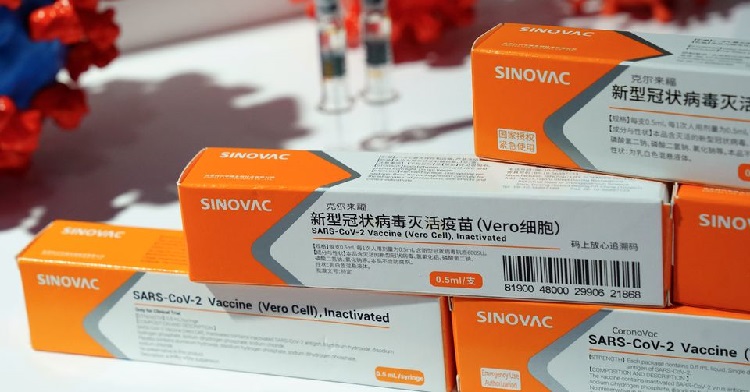WHO approves Sinovac vaccine for emergency use in all countries

As f now vaccination is currently underway with Pfizer, AstraZeneca, Sinopharm and Sinovac vaccines in Georgia. Photo: Reuters/Tingshu Wang
The World Health Organisation (WHO) has approved the second Chinese Sinovac vaccine for emergency use in all countries, giving the green light for this vaccine to be rolled out globally, including in Georgia.
Georgia started Sinovac vaccination on May 24 over a week before the final WHO approval.
WHO today validated the Sinovac-CoronaVac #COVID19 vaccine for emergency use, giving countries, funders, procuring agencies & communities the assurance that it meets international standards for safety, efficacy and manufacturing.
— World Health Organization (WHO) (@WHO) June 1, 2021
More ⬇️ https://t.co/Uy0xmGlAIT
The vaccine, produced by the Beijing-based pharmaceutical company Sinovac, is an inactivated vaccine. Its easy storage requirements make it very manageable and particularly suitable for low-resource settings.
The world desperately needs multiple COVID-19 vaccines to address the huge access inequity across the globe”, WHO Assistant-Director General for Access to Health Products Dr Mariângela Simão said .
We urge manufacturers to participate in the COVAX Facility, share their knowhow and data and contribute to bringing the pandemic under control”, Dr Simão added.
Vaccine efficacy results showed that the vaccine prevented symptomatic disease in 51% of those vaccinated and prevented severe Covid-19 and hospitalisation in 100% of the studied population.
WHO has already listed the Pfizer/BioNTech, Astrazeneca-SK Bio, Serum Institute of India, Astra Zeneca EU, Janssen, Moderna and Sinopharm #COVID19 vaccines for emergency use https://t.co/Uy0xmGlAIT
— World Health Organization (WHO) (@WHO) June 1, 2021
On the basis of available evidence, WHO recommends the vaccine for use in adults 18 years and older, in a two-dose schedule with a spacing of two to four weeks. Few older adults over 60 years were enrolled in clinical trials, so efficacy could not be estimated in this age group.
Nevertheless, WHO is not recommending an upper age limit for the vaccine. It instead recommends that countries using the vaccine in older age groups conduct safety and effectiveness monitoring to verify the expected impact and contribute to making the recommendation more robust for all countries.
 Tweet
Tweet  Share
Share